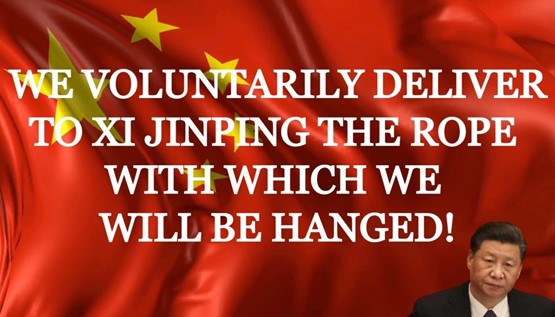4th November 2024
The U.S. Select Committee on the Chinese Communist Party (CCP) is focused on building consensus around the national security threat posed by the CCP. In its latest communication to the University of Michigan, the Committee urged the university to reconsider its partnership with Shanghai Jiao Tong University in China.
House Select Committee on the CCP Chairman John Moolenaar (R-MI) disclosed findings from an investigation into American educational institutions’ partnerships with China. This probe, titled *”CCP on the Quad: How American Taxpayers and Universities Fund the CCP’s Advanced Military and Technological Research,”* has already led universities like UC Berkeley and Georgia Tech to begin severing ties with Chinese institutions.
However, the University of Michigan has yet to take similar steps.
Shanghai Jiao Tong University is known for supporting China’s military intelligence capabilities and modernization efforts, including the development of carrier rockets, nuclear weapons, fighter jets, and nuclear submarines.
The University of Michigan also hosts students from Shanghai Jiao Tong University on its campus as part of the ongoing joint institute, posing an espionage risk. This past month, five of these students were charged for lying to federal investigators after they trespassed onto a U.S. National Guard installation.
In his letter to the university, Chairman Moolenaar wrote: “Through its extensive military-aligned departments and laboratories, advanced dual-use research programs, and large-scale operational training platforms, Shanghai Jiao Tong drives the [People’s Republic of China] PRC’s military modernization and intelligence capabilities…This military-academic integration enables Shanghai Jiao Tong to make significant contributions to the PRC’s most sensitive defense programs, including nuclear weapons, carrier rockets, satellites, nuclear submarines, and fighter jets…The [U-M] Joint Institute has also operated as a sophisticated military-academic-intelligence nexus for over a decade. In 2017, Shanghai Jiao Tong entered into an agreement with the PLA’s Strategic Support Force to train ‘high-end new combat forces.’ The Joint Institute appears to play a role in achieving this goal. Each year’s freshmen are organized into regimented companies for mandatory military training that combines physical drills with ideological education.”
“Given these concerning developments, I strongly encourage you to shutter the partnership between U-M and Shanghai Jiao Tong and take the necessary steps to safeguard the integrity of federally funded research at U-M and carefully vet international students studying on U-M’s campus,” added Chairman Moolenaar.
Chairman Moolenaar also highlights consecutive examples of how University of Michigan’s joint institute with Shanghai Jiao Tong University poses unacceptable national security risks, including:
- Since 2021, the Joint Institute has facilitated graduate and undergraduate study in numerous critical and emerging technologies, and it has received funding through China’s 863 Program, which supports the PRC’s military technology development.
- Institute researchers have helped the PRC achieve advancements in defense technologies from propellant combustion modeling and solid rocket fuel research to anti-corrosion technology for military aircraft developed with People’s Liberation Army (PLA) researchers.
- Institute researchers worked on projects to improve CT imaging technology for detecting flaws in advanced military equipment, which appears to have leveraged Department of Defense-funded research from University of Michigan faculty.
- Shanghai Jiao Tong houses China’s National Defense Laboratory for Nano- and Microfabrication Technology, a field that is a key research area of the Joint Institute as well.
- Joint Institute students join the PRC’s military aerospace sector including through positions at the USG-blacklisted CASC’s 8th Academy for missile development.
Read Chairman Moolenaar’s letter to the University of Michigan HERE.


